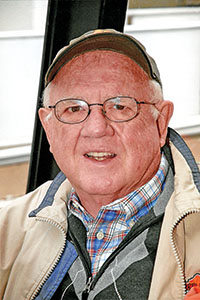When Aretha Franklin, Howard Hughes and Prince died without having bothered to create a legal will, they left their huge estates in a disastrous legal mess. While a farrier’s assets and property aren’t likely to be anywhere close to the value of what these three well-known individuals left behind, you want the legal protection that can be yours by taking a few hours to pull together a needed legal document.
Who Will Raise the Kids?
A recent American Farriers Journal email survey indicated 47% of farriers don’t have a will, which means they’ll have no say in how their property will be distributed in case of death.
Yet that’s pretty typical of all Americans as a recent Merrill Lynch and Age Wave survey shows 45% of U.S. residents 55 years and older haven’t bothered to take the time or effort to prepare a will. Just as important, only 36% of Americans with children under 18 years of age had end-of-life plans in place, which is critical if you want to have any say in who’ll raise your young children rather than having a judge make these decisions.
When asked why they don’t have a will, most Americans say they simply haven’t gotten around to doing it. Without a written will, the laws in the state where you live will determine how all your assets and property would be distributed. And since this will likely require a legal decision, court costs could eat up a considerable chunk of your estate.
While the best idea is to hire an attorney to do the paperwork, you can do it yourself with various computer software programs. One example is the no-fee, online will-writing service offered by FreeWill that can do the job for you.
No Will, No Say
The following documentation is based on material written specifically for Wisconsin residents. It was pulled together by Shanna Youke, an attorney with the Ruder & Ware law firm in Wausau, Wis. If you don’t have a will, hopefully this article will motivate you into taking the time and effort to put one together.
For these examples, let’s say Harry Jones, a 47-year-old Wisconsin farrier accidentally dies without having a will. As a result, his assets and property will be distributed based on one of the following seven inheritance scenarios.
- When Harry died, he was married to Sally. Harry and Sally had four children together. Sally will inherit 100% of Harry’s property.
- When Harry died, he was married to Sally, who was his second wife. Harry had two children with his first wife, and two children with Sally. Sally will inherit 50% of Harry’s property, and each child from Harry’s first marriage will inherit 25% of Harry’s property.
- Harry’s second wife, Sally, died before him. Harry was survived by four children, two from his first marriage and two from his second marriage. Each child will inherit 25% of Harry’s property.
- Harry, his wife Sally, and Harry’s four children died in an accident together. Since Harry’s parents are still alive, each parent will inherit 50% of Harry’s property.
- Harry, his wife Sally, and Harry’s four children died in an accident together. While Harry’s parents died 7 and 11 years earlier, Harry’s brother is alive. Harry’s sister died before him as well, but her two children are still alive. Harry’s brother will inherit 50% of his property, and each of Harry’s sister’s two children will inherit 25% of his property.
- Harry, his wife Sally, and Harry’s four children all died in an accident together. Harry’s parents, siblings, and nieces and nephews died before him as well. Yet Harry’s grandfather on his father’s side is still alive, while Harry’s grandparents on his mother’s side died before him. However, Harry’s aunt (his mother’s sister) is alive. Harry’s grandfather will inherit 50% of his property and Harry’s aunt will inherit 50% of his property.
- Harry is not survived by any family members. Harry’s property will be contributed to the Wisconsin State School Fund.
You Call the Shots
While these are the inheritance rules for Badger state residents, keep in mind that the rules will likely be different in the state where you live. (And if you want that 75-year-old anvil to go to a favorite cousin and your favorite hammer to go to your favorite apprentice, it had better be spelled out in your will.)
But from these inheritance examples, you can see how asset distribution can become extremely complicated. To avoid possible legal maneuvering and costly family feuding, take a few hours to put together a document that will spell out how you want your assets and property to be distributed.
Since it’s your life and property, you should be the one making these important after-death decisions.
What Happens in Wisconsin
(Other states have different rules)
| Relationship to Deceased Person | Inheritance from Deceased Person (Percentage of Net Estate) |
| Spouse | 100% if deceased person's children, if any, are spouse's children. 50% if deceased person has children from a prior relationship. |
| Children |
50% divided equally among children if spouse is not parent. 100% if deceased person did not have surviving spouse. |
| Parents | 100% divided equally between parents. |
| Siblings | 100% divided equally among siblings (and a deceased sibling's part is divided equally among that sibling's children). |
| Grandparents |
50% divided equally between maternal grandparents. 50% divided equally between paternal grandparents (If no surviving grandparents, then property passes through this inheritance chart, as applied to grandparents.) |
| Wisconsin State | 100% if deceased person has no heirs. |







